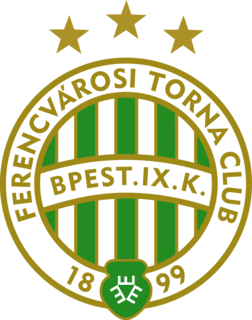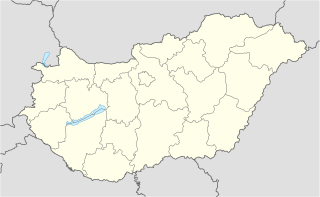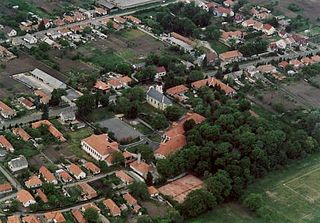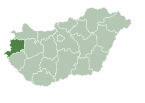
Central Europe is the central region of Europe. Central Europe includes contiguous territories that are sometimes also considered parts of Western Europe and Eastern Europe. The concept of Central Europe is based on a common historical, social and cultural identity and is a patchwork of territories that are traditionally Catholic and Protestant. The Thirty Years' War between Catholicism and Protestantism was a significant shaping process in the history of Central Europe, and neither side was able to prevail in the region as a whole.

Hungary is a country in Central Europe. Spanning 93,030 square kilometres (35,920 sq mi) of the Carpathian Basin, it is bordered by Slovakia to the north, Ukraine to the northeast, Romania to the east and southeast, Serbia to the south, Croatia and Slovenia to the southwest, and Austria to the west. Hungary is a landlocked country. Hungary has a population of 10 million, mostly ethnic Hungarians and a significant Romani minority. Hungarian, the official language, is the world's most widely spoken Uralic language, and among the few non-Indo-European languages widely spoken in Europe. Budapest is the country's capital and largest city; other major urban areas include Debrecen, Szeged, Miskolc, Pécs, and Győr.

Hungary wields considerable influence in Central and Eastern Europe and is a middle power in international affairs. The foreign policy of Hungary is based on four basic commitments: to Atlantic co-operation, to European integration, to international development and to international law. The Hungarian economy is fairly open and relies strongly on international trade.

Budapest is the capital and most populous city of Hungary. It is the ninth-largest city in the European Union by population within city limits; the city has an estimated population of 1,752,286 over a land area of about 525 square kilometres. Budapest, which is both a city and county, forms the centre of the Budapest metropolitan area, which has an area of 7,626 square kilometres and a population of 3,303,786, comprising 33% of the population of Hungary.

The Hungary national football team represents Hungary in men's international football and is controlled by the Hungarian Football Federation. The team has made nine appearances in the FIFA World Cup finals and four appearances in the European Championship, and plays its home matches at the Puskás Aréna, which opened in November 2019.

Viktor Mihály Orbán is a Hungarian politician who has served as Prime Minister of Hungary since 2010, previously holding the office from 1998 to 2002. He has presided over Fidesz, a national conservative political party, since 1993, with a brief break between 2000 and 2003.

Ferencvárosi Torna Club, known as Ferencváros, Fradi, or simply FTC, is a professional football club based in Ferencváros, Budapest, Hungary, that competes in the Nemzeti Bajnokság I, the top flight of Hungarian football. Ferencváros was founded in 1899 by Ferenc Springer and a group of local residents of Budapest's ninth district, Ferencváros. Ferencváros is best known internationally for winning the 1964–65 edition of the Inter-Cities Fairs Cup after defeating Juventus 1–0 in Turin in the final. Ferencváros also reached the final in the same competition in 1968, when they lost to Leeds United, as well as the final in the 1974–75 season of the European Cup Winners' Cup, losing to Dynamo Kyiv.

Pál Dárdai is a Hungarian retired footballer who played mainly as a defensive midfielder, and current coach of German club Hertha BSC.

Gelej is a village in Borsod-Abaúj-Zemplén county, Hungary.

Gesztely is a village in Borsod-Abaúj-Zemplén county, Hungary.

Halmaj is a village in Borsod-Abaúj-Zemplén county, Hungary. Before World War II, there was a Jewish community in Halmaj. At its height, there were 61 Jews in the community most of them were murdered by the Nazis in the Holocaust.

Rudolftelep is a village in Borsod-Abaúj-Zemplén county, Hungary.

Tard is a village in Borsod-Abaúj-Zemplén county, Hungary.

Bódvaszilas is a village in Borsod-Abaúj-Zemplén county, Hungary.

Hidvégardó is a village in Borsod-Abaúj-Zemplén County in northeastern Hungary. It contains the northernmost point of Hungary.

Kondó is a village in Borsod-Abaúj-Zemplén County in northeastern Hungary.

Mezőnyárád is a village in Borsod-Abaúj-Zemplén County in northeastern Hungary.

Oszlár is a village in Borsod-Abaúj-Zemplén County in northeastern Hungary.

Sajókaza is a village in Borsod-Abaúj-Zemplén County in northeastern Hungary.

Sajóhídvég is a village in Borsod-Abaúj-Zemplén County in north-eastern Hungary.






















